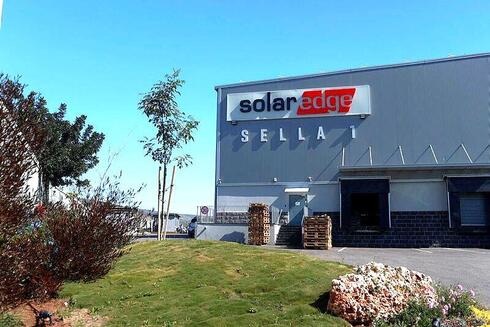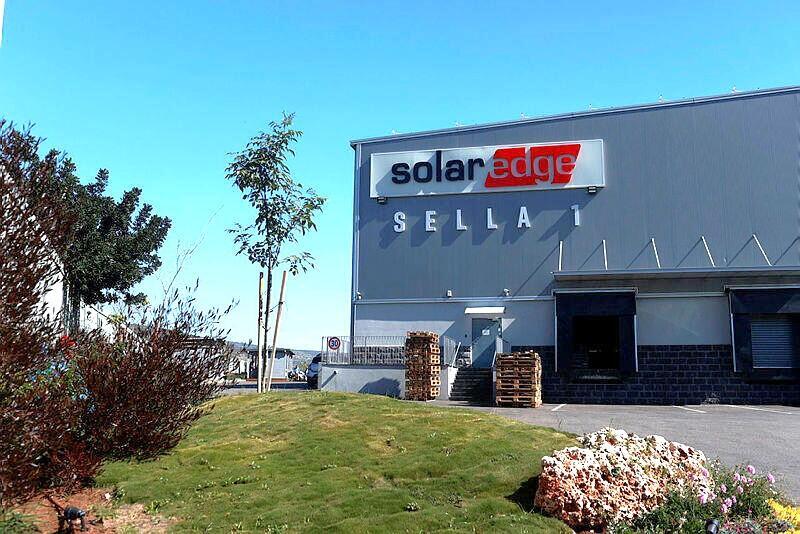
SolarEdge struggles mount as Trump’s energy stance clouds green sector’s future
The renewable energy company’s shares fell 22% in after-hours trading following a sharp drop in quarterly revenue and a significant widening of losses.
SolarEdge shares fell 22% in after-hours trading following a sharp drop in quarterly revenue and a significant widening of losses. The company also announced changes in its management structure.
Even before the earnings release, SolarEdge shares had already fallen by 22% on Wednesday (to a valuation of $840.9 million), as part of a broader downturn across the green energy sector. The declines followed Donald Trump's presidential election victory, as he is widely considered a supporter of traditional energy and, at best, skeptical regarding renewable energy and climate policy.
SolarEdge’s revenue in the third quarter of this year totaled $260.9 million, marking a 64% decrease compared to the same period last year. In the company’s primary solar division, revenue was $247.5 million, representing a 63% decline year-over-year.
SolarEdge’s operating expenses (non-GAAP) reached $116 million, a 1% increase compared to the previous year. Non-GAAP losses per share jumped to $15.33 from $0.55 in the same quarter last year.
Nadav Zafrir, who served as SolarEdge’s chairman for the past five years, will step down from the role but remain a director. Zafrir, who joined SolarEdge in August 2019, oversaw both the company’s rapid ascent and its subsequent struggles. He will be succeeded by Avery More, a company director and the first investor in SolarEdge through his ORR fund. Another board change includes the departure of Tal Payne, who will be replaced by Guy Gecht.
In December, Zafrir is set to become the CEO of Check Point. SolarEdge is currently facing the most severe crisis in its history, with its valuation plunging from nearly $20 billion two years ago to less than $1 billion today. The announcement of Zafrir’s upcoming appointment as Check Point’s CEO led to a nearly 6% jump in Check Point's stock, reflecting investor confidence in Zafrir’s track record, especially his success with the Team8 investment fund that he founded.
Despite his successes, Zafrir’s tenure at SolarEdge included one of the most substantial declines in recent years, with the company’s stock losing 95% of its value from its peak in the summer of 2022. A former commander of the elite Israeli military unit 8200, Zafrir left the IDF in 2013 and founded the Team8 fund two years later.
Zafrir became chairman of SolarEdge in August 2019 due to health issues affecting then-chairman and founder Guy Sella. Initially co-chairman, Zafrir took over as chairman after Sella’s passing while continuing his work with Team8. At that time, SolarEdge’s valuation was below $4 billion, but it quickly climbed.
During his first three years, the company's stock soared. Amid the pandemic, as governments invested heavily in infrastructure and economic incentives, SolarEdge saw a surge in sales. Supply chain disruptions also led suppliers to build up inventory to avoid shortages, while low interest rates made solar projects more viable, boosting demand. In December 2021, SolarEdge became the first Israeli company to join the prestigious S&P 500 index, although it was removed two years later.
The positive trend continued into early 2022. With the onset of the Ukraine war and the subsequent halt of Russian natural gas to Europe, electricity prices surged, driving demand for solar components. In the summer of 2022, SolarEdge reached a peak valuation of $19.95 billion.
However, over the past year, conditions have changed. European countries adapted to the new energy landscape, bringing electricity prices back to pre-war levels. Solar projects on commercial rooftops and residential buildings became less financially viable, leading to reduced demand. In California, new regulations made installing solar panels without storage facilities less profitable, and rising interest rates added further economic constraints.
These factors reduced demand for SolarEdge products, and the distributors selling its products to end customers found themselves with excess inventory. In December 2023, the company was removed from the S&P 500 index due to declining sales.
SolarEdge’s downward sales trend has continued. The company ended the second quarter with a $130 million loss, compared to a net profit of $119 million in the same quarter in 2023. This marked the fourth consecutive quarter of losses.















